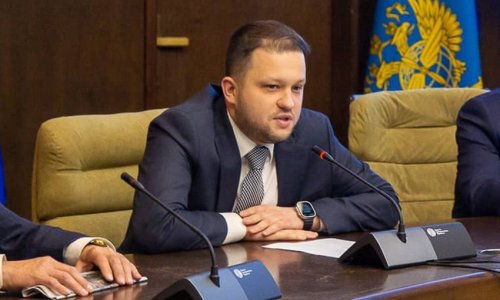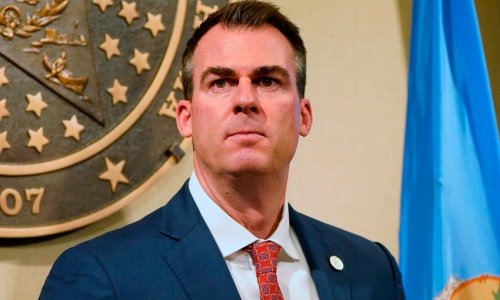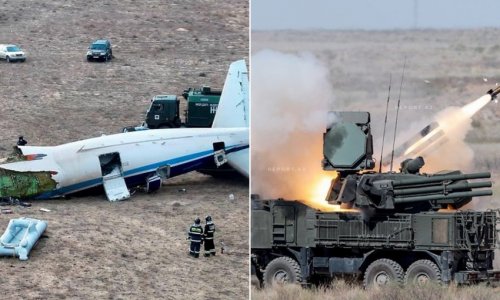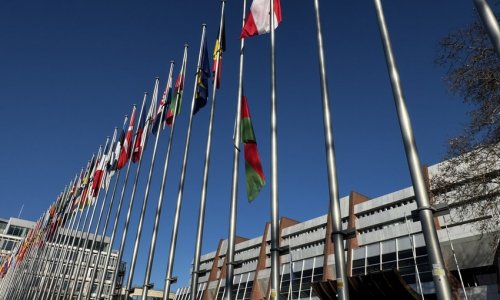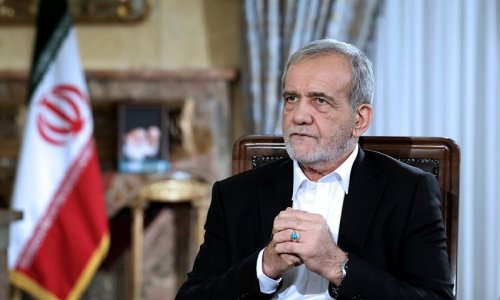As the tragedy of Malaysian Airlines flight MH17 showed, one needs to look no further than the pro-Russian Ukrainian separatists’ own Facebook pages to identify the culprits of these murders and the supporters empowering them. The separatists’ social media posts can be very revealing, from celebrating hitting civilian targets to showing off the victims’ personal belongings stolen from the crash site. It shouldn’t come as a surprise then that the infamous and equally grotesque Russian-intelligence-officer-turned-separatist-leader, Igor Girkin, uses his Facebook presence to support recent Armenian attacks on U.S. ally Azerbaijan, while another prominent militant, Valery Bolotov, discloses that he criminally fought alongside Armenian separatists against Azerbaijan in the 1990s.It seems that the logic and the tactics of all separatist conflicts in the post-Soviet space are the same and that their main objective is to undermine the sustainable and independent development of the pro-Western nations of Azerbaijan, Georgia, Molodva and Ukraine. Could this be in Russia’s best interests, as it rides its neo-imperialistic resurgence unchecked by a weak U.S. administration unwilling to stand up for its allies? It is suspected that in recent days, just as violence escalates in Eastern Ukraine, Armenian forces launched an attack on Azerbaijan, an attack few would doubt originated from Moscow.Looking at a map of Eurasia makes one thing clear: being a friend of the United States comes at a high price, specifically to those with occupied territories, while Russian vassal states, such as Armenia, enjoy relative protection. Armenia is unique because despite its clearly anti-Western policies, it still enjoys political support in Washington and is a top recipient of American aid per capita. Armenia, having de facto lost its independence to Russia, has cozied up to Iran for decades (lest we forget that it was Armenia that transferred European arms to Iran, who in turn gave them to Iraqi insurgents who killed Americans with them), continues to host Russian military bases and even has its airspace and borders patrolled by the Russian military. What’s more, Armenia voted with only a handful of other rogue states at the UN against the territorial integrity of Ukraine (a vote championed by U.S.).Armenian leaders are so confident in their ability to be simultaneously the darling of the U.S., Iran and Russia that they are not very shy about it; for instance, Armenian President Serj Sarkissian was among a very few leaders who, just this year, congratulated Syria’s Bashar al-Assad on his “reelection” and appointed a Russian citizen, a Moscow-based oligarch, as Armenia’s Consul General to Los Angeles.And what is Washington’s response to all the developments in the region? Thankfully, there has been some supportive rhetoric for Ukraine (and, of course, some meals-ready-to-eat-MREs), yet not an equally strong endorsement of another strategic and reliable ally, Azerbaijan. In an illogical twist, Washington imposes sanctions on Russia -- but instead of applying the same to Armenia, the United States remains the only nation in the world providing direct assistance to Armenian separatists in Nagorno Karabakh. Washington seems to have developed an imperative to engage when it is too late, if at all, in reaction to Moscow’s assertive actions and has excelled in sending mixed messages. Azerbaijan is arguably the most pivotal nation in Eurasia today. It is a key transit point for NATO operations in Afghanistan, the only nation bordering both Russia and Iran, and one of the very few secular and tolerant Muslim societies in the world. Yet instead of intensively reaching out to Azerbaijan, Washington constantly criticizes or alternately ignores Baku.In contrast to Russia and Iran, which both frequently send top level delegations to convince Baku to turn away from its pro-Western course, Washington has been MIA, with Hillary Clinton being the last high-level Administration official visiting in 2012. Compare this to the Moscow: Putin personally visited Baku just before the presidential elections in 2013 to court Azerbaijani president Ilham Aliyev. Now consider this through the prism of regional perceptions and the global outcry about the lack of American leadership.Failing to offer a credible security commitment to their allies in the post-Soviet space, the United States and Europe are unable to address their most immediate and present threats. Offering some vague European prospects peppered by heavy criticism and diluted by the constant bickering and lack of leadership among the Europeans, the West comes across as weak in the face of Russia’s decisive, instant and brutal force. The much touted EU Association agreement doesn’t even offer clear support to Azerbaijan for its territorial integrity, unlike the other candidates. This is a sign of strategic confusion in the European ranks.Europe’s energy security is a major geopolitical concern as vividly demonstrated by the disunity among the Continent’s leaders in the wake of Russian attacks in Ukraine in 2014 and in Georgia in 2008. Therefore, developing alternative supplies of natural gas should logically become the top priority. However, the combined Western efforts to advance the Southern Gas Corridor, the only shovel-ready project for delivery of the Caspian gas from Azerbaijan’s Shah-Deniz field to European markets, are weak at best.Finally, as the example of pro-Russian separatists and even of the fanatics of ISIL in Iraq have shown, not everyone who masters Facebook or Twitter is our friend or a believer in democracy. From the Middle East to the post-Soviet space, these are trying days for the world. The United States needs to show leadership by identifying and supporting its friends, while dealing effectively with its opponents. Otherwise, the U.S. just continues to appear weak on the world stage and, some would say, a declining power. Katz is the principal of TSG, LLC, a consultancy that advises foreign governments, NGOs and corporations in the realms of strategic communications, politics and policy. He is also the former head of Public Affairs and Public Relations for the American Jewish Committee, based in Los Angeles.Bakudaily.Az
America’s confused foreign policy in the post-Soviet sphere - THE HILL
Political News
22:00 | 05.09.2014
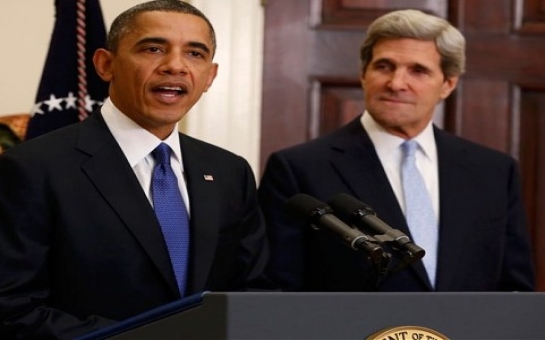
America’s confused foreign policy in the post-Soviet sphere - THE HILL
By Jason Katz
Follow us !

